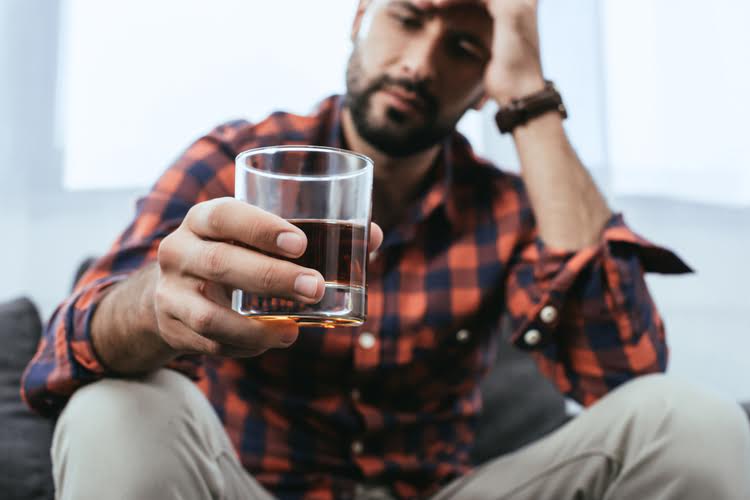If you or a loved one is struggling with addiction, Quest 2 Recovery is here to guide you on the path to recovery. Feeling grateful triggers positivity that reflects in your subconscious mind influencing your behavior towards people around you. Being able to recognize all those who help us get https://softwarebazar.net/2022/05/25/transactional-writing-letters-that-heal/ through life brings a sense of radiance into our everyday demeanor setting an example that paying it forward only leads to prosperity. Compassion Recovery Center understands the importance of relational healing in recovery. We offer virtual couples counseling rehab as part of our comprehensive telehealth services. It’s easy to become irritable, angry, and impatient when we focus on the worst qualities in others.
- These entries can include people, personal strengths, small moments of peace, or supportive experiences.
- By focusing on gratitude, individuals can foster a more positive outlook, enhance mental well-being, and strengthen social connections, all of which contribute to a more successful recovery journey.
- Surrounding oneself with individuals who understand the challenges of recovery fosters trust and encourages a supportive atmosphere.
- They are the embodiment of a gift that is freely given to someone to show them they are deeply appreciated.
Online Therapy Can Help
When we honor and appreciate other people’s assets, we create a safe environment where they, too, can feel happy and grateful, and they benefit from our presence. Gratitude is a muscle that develops with training and practice, and when we make a habit of appreciating the better qualities in life, we strengthen that muscle in our mind. When that muscle grows strong enough, we will reflexively notice the good, and we will see something’s benefits before its real or imaginary drawbacks and limitations.
- Focusing on gratitude and things you’re grateful for also means you’re focusing on good things and that can be a powerful influence on your mindset and overall wellbeing.
- Integrating gratitude into your daily life can bring positivity and happiness.
- Those who view recovery as a burden or see their recovery experience as negative are more likely to turn back to alcohol or drugs.
How IOPs integrate family therapy into recovery
Cultivating gratitude during recovery can significantly enhance your coping strategies and emotional well-being. Daily practices such as keeping a gratitude journal, writing thank-you notes, or engaging in creative outlets can help shift your focus from negative thoughts to the positive aspects of life. Practicing gratitude during recovery is highly beneficial but can be challenging due to various emotional hurdles. Many individuals experience feelings of hopelessness, guilt, or resentment, especially in the early stages of recovery. These negative emotions can overshadow any positive feelings and make it difficult to recognize personal progress or blessings. Overall, scientific research validates that gratitude is a powerful tool for fostering emotional balance, resilience, and healthier why is gratitude important in recovery lifestyles—elements vital for sustaining recovery from addiction.
What are practical strategies for practicing gratitude in recovery?
Those with addiction issues sometimes have maladjusted ways of thinking, which become habits. These thoughts, as mentioned, can tend to be negative, always seeing what is wrong and what we don’t want. When we are optimistic, we see good outcomes in even the most trying situations. Studies have shown that those individuals who were considered optimistic had better overall health and, in some cases, aged better, too. When we show gratitude to others we are in relationships with, they, too, feel better, and Alcoholics Anonymous the relationship can heal and improve. Some studies have shown that when gratitude is expressed in romantic relationships, feelings of happiness last through the following day.
The Healing Power of Gratitude Letters

There are plenty of ways to be generous each and every day, but recognizing the opportunities that come your way takes effort and attention. For example, if someone from your AA group needs a place to stay for a week, opening up your home is a great way to be generous. Or if you see someone struggling to carry groceries to their car, the simple act of offering a helping hand can go a long way. Get a jar of any kind and when something good happens write it on a strip of paper and put it in the jar. Then each day (once you get some stockpiled) take one out and remember what you have to be happy about.
- MAT provides the physical stability needed to engage in the deeper work of recovery, and gratitude provides a powerful mental and emotional framework to support that work.
- It helps create a sense of belonging, which is particularly important for individuals who might feel isolated in recovery.
- The key is to continue practicing gratitude even on difficult days—it’s a muscle that strengthens over time.
- Receive encouragement from people worldwide who know exactly what you’re going through!
- Overall, developing a practice of gratitude is a practical and powerful tool in the journey of recovery.
- However, in recovery, it is important to follow through with such actions and actually express thankfulness.
As you write, take a moment to fully engage with the experience of gratitude. Notice how it feels in your body and allow yourself to fully experience the positive emotions that come with it. Practicing gratitude plays a crucial role in improving recovery results and preventing relapse among individuals overcoming addiction. By fostering a sense of emotional resilience, gratitude helps individuals develop a more optimistic outlook, making it easier to manage stress and cope with challenges.

The spouse might, in turn, express gratitude for the person’s commitment to sobriety and their newfound emotional presence. These small exchanges, fueled by genuine appreciation, build positive momentum and help chip away at layers of hurt. Start small, be patient with yourself, and remember that even brief moments of thankfulness can make a difference.

The Importance of Self-Reflection in Addiction Recovery
Practicing gratitude also enhances social connections, promoting trust and empathy within recovery communities. These strengthened relationships can serve as crucial support systems, offering encouragement and accountability. All of the above benefits are essential in recovery, so you should practice meditating for at least a few minutes every day.
Why Relapse Is a Part of Recovery, Not a Failure
Practicing gratitude is a powerful tool that promotes overall well-being during recovery from addiction. Mentally, gratitude helps shift focus away from negative thoughts such as guilt, resentment, or hopelessness, replacing them with positive emotions like hope, joy, and contentment. This shift rewires neural pathways related to happiness and emotional regulation, activating reward centers in the brain and releasing feel-good chemicals like dopamine and serotonin. These biochemical changes can improve mood, reduce feelings of depression, and decrease anxiety, making it easier for individuals to stay committed to sobriety. Addiction recovery is a challenging journey, often filled with emotional and physical hurdles.












